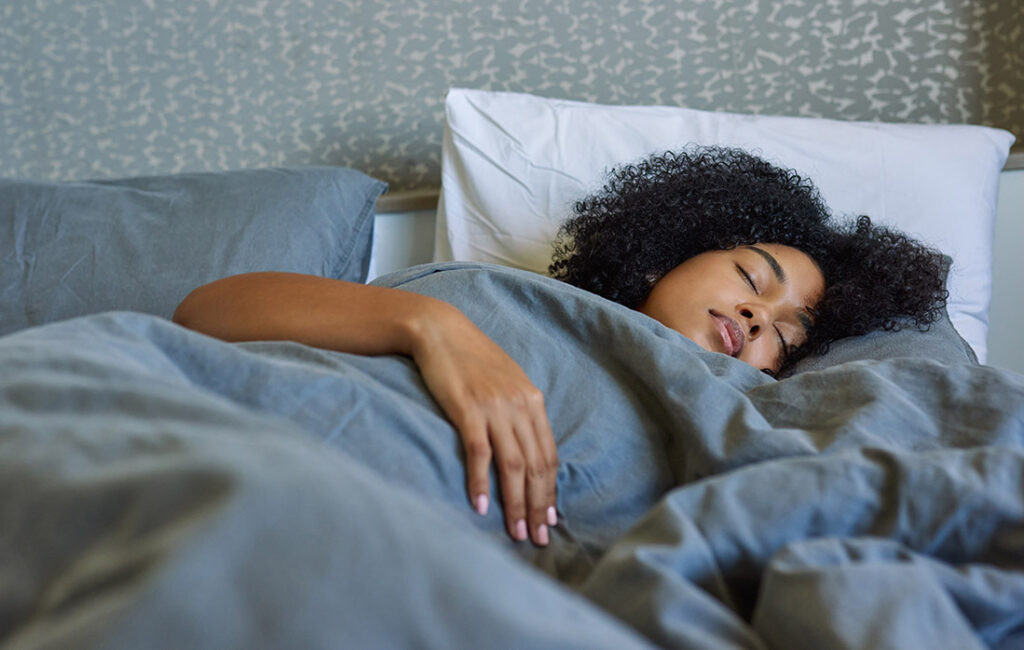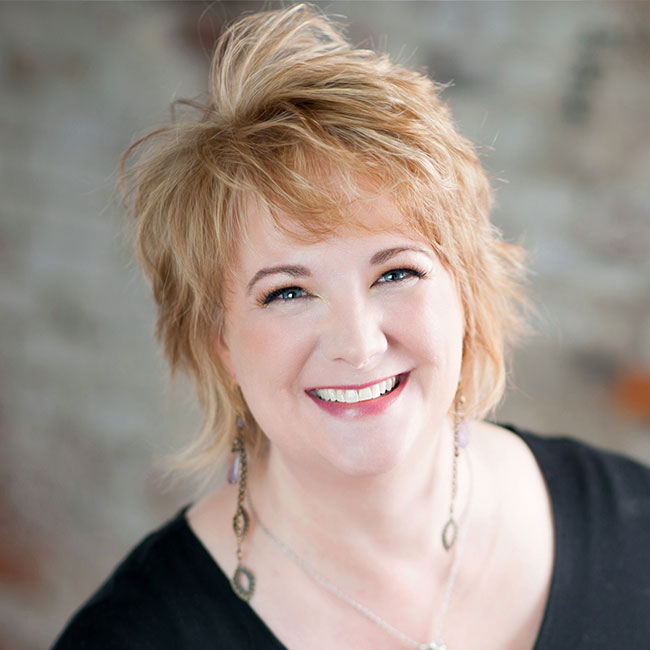
Few actions feel as decadent as popping awake momentarily, then snuggling further into your covers and pillows to go back to sleep. Maybe you even plan ahead for a lazy weekend day by not setting an alarm the night before and just getting up when you feel like it. Heaven!
But is sleeping in bad for you? It really depends. Many of us do it as a way to make up for a temporary sleep debt, which isn’t always a bad thing. However, if it becomes a habit, or if you’re hitting “snooze” too frequently, it might be time to take a closer look at your sleep hygiene.
Is Sleeping in Bad for You?
Kristen Casey, a licensed clinical psychologist and insomnia specialist, tells Sleepopolis that sleeping in is defined as waking up past a certain time, such as when “someone who wakes up at 8 a.m. instead of their usual rise time of 6 a.m.” She says that while medical professionals don’t notice any extremely detrimental effects to sleeping in, it may be unhelpful if it becomes a pattern. Here are some reasons why.
- “Sleeping in may disrupt our natural sleep-wake cycle, especially if someone is sleeping in randomly,” Casey says. Also known as your circadian rhythm, you navigate life better and stay healthier if it’s consistent.
- It might also cause issues with sleep initiation at night. “For example, if someone usually rises at 6 a.m. but ends up sleeping in one day, their body clock may be thrown off because they might not be tired at bedtime,” Casey says.
- “If a person wakes around the same time each day, we notice their body becomes accustomed to certain activities around certain times,” Casey says. Altering your regular sleep habits by frequently sleeping in can upset other bodily processes, such as hunger cues or bowel movements.
- Sleeping in might also make you feel anxious or upset if you weren’t able to complete certain tasks in a timely manner as a result of getting up later than usual.
- “Sleeping in may also cause unpredictable energy levels,” Casey adds. “Some people notice a ‘crash’ around 1–3 p.m., but they can plan for it to continue to be productive, or plan for a short safety nap to overcome it. But unpredictable tiredness may get in the way of a productive day.”
What About Hitting Snooze?
Who among us hasn’t tapped that button a time or two — or three? Casey says it’s not really a problem to do this, but it can confuse your body over time. “When we hear a sound and wake up, our body begins the wake up process.” This includes stopping melatonin production, a hormone that helps us sleep, and ending the final REM cycle naturally.
“However, if we snooze and fall back to sleep, that entire process comes to a halt,” she adds. “Our body is sort of awake, sort of not, so it may be in limbo.” It’s more helpful to set your alarm to the latest possible time you need to start the day effectively, and wake up to it.
Benefits of Sleeping in
The Centers for Disease Control and Prevention reports that one in three adults don’t get all the rest they need — on average, most of us feel better with at least seven or more hours. This approximation is because many factors impact the duration and quality of sleep, including age, lifestyle habits, individual biological factors, and potentially gender.
One of the main potential benefits of sleeping in is avoiding sleep deprivation. “We know that chronic sleep deprivation isn’t healthy or helpful long term.” Casey says. The side effects can be unpleasant at best and harmful for your health at worst. And while sleeping in on the weekends can help you “catch up” on some sleep, it doesn’t always solve the underlying problem — and often isn’t enough to make up for all the missed sleep accrued throughout the week.

Sleeping in on Weekends
Without a doubt, most of us try to pay off our sleep debt on our days off! Casey notes that doing this occasionally is fine. “If someone accrues sleep debt throughout the week and sleeps in on the weekend, it may help them feel a little more rejuvenated.”
However, her overall recommendation is to prioritize sleep each day rather than catching up on the weekend. To do this effectively, you might have to first calculate your sleep debt, then evaluate the possible reasons for it, such as:
- Staring at electronic devices before bedtime
- Not having an established sleep routine
- Varying school and work schedules
- Parenting young children
- Dealing with chronic pain or a mood disorder, such as anxiety
- Jet lag
- Different sleep disorders, such as insomnia, restless leg syndrome, and sleep apnea
The Difference Between Sleeping in vs. Oversleeping
Intention, plain and simple. “When we intend to sleep past our alarm, we may refer to this as sleeping in,” Casey says. “When we oversleep, it’s usually by accident or without realizing that we’re doing it in the first place.”
Women and Men’s Different Sleep Needs
Anecdotally, there are many cases of women who say they often feel more groggy in the morning than their male partners. Casey says sleep needs vary between individuals, but women tend to experience insomnia more than men. Additionally, we know women do need a bit more sleep than men. Yale Medicine reasons that fluctuating hormones could be a contributing factor:
- Women on their menstrual cycles experience varying levels of estrogen and progesterone. Progesterone dips significantly right before bleeding begins, “which is why some women can find it really difficult to get quality sleep in those PMS days,” the organization states. When the cycle ends, progesterone levels increase again, promoting better rest.
- Expectant mothers experience sharp increases in estrogen — more during one pregnancy than throughout the entire rest of her life. This likely contributes to the drowsiness reported by many pregnant women, as well as the more frequent rate of napping during the first 12 weeks of pregnancy.
- During menopause, shifting hormone levels cause irritating reactions such as hot flashes and night sweats, disrupting sleep. Progesterone is practically non-existent at this point, too, which Yale reports contributes to feelings of irritability and makes it more challenging for some women to relax.
So at various times in life, many women might find it easier to simply pull the covers over their heads, trying to recoup what precious sleep they’ve lost in the night.
Casey adds that it’s hard to say if there are specific gender preferences for sleeping in. “A man may operate efficiently on seven hours of sleep, and a woman of the same age may experience the same thing,” Casey adds. “However, they may both like sleeping in on the weekends — I mean, who doesn’t?”
Interestingly, according to a 2022 survey, female respondents identified more as night owls, whereas male respondents considered themselves early birds. So burning the proverbial midnight oil could mean you’re less likely to want to wake up with the sun.
Tips for Waking Up Earlier
Practicing good sleep hygiene is always recommended for better health, but if you’re staying in bed longer than usual, here’s how to improve behavior:
- Establish consistent sleep and wake times (yes, even on weekends)
- Avoid naps, or at least limit them to 10–20 minutes
- Exercise regularly first thing in the morning or in the early afternoon
- Reserve the bedroom for only sleep and sex
Another suggestion from Casey is to use a sunrise alarm clock. She says our body is meant to wake up to light, and there are certain parts of the brain that regulate sleep by light and consistency. “So if we set an alarm for the same time each day and it happens to be a sunrise alarm, even better,” she adds.
The Last Word From Sleepopolis
When you invest in a first-rate mattress, the perfect pillows, and uber-cozy sheets, sometimes it’s difficult to leave that haven! But ultimately, the quality of your overall rest depends on consistency. So make certain your sleep hygiene habits reinforce a schedule that ensures peaceful slumber.
Sources
- Do You Get Enough Sleep? The Centers for Disease Control and Prevention. March 12, 2021.
- Melatonin: What You Need to Know. National Center for Complementary and Integrative Health. July 2022.
- Chen J. Women, are your hormones keeping you up at night. Yale Medicine. July 10, 2017.
- Ma, Melinda A, Morrison EH. Neuroanatomy, nucleus suprachiasmatic. National Library of Medicine. July 25, 2022.



























